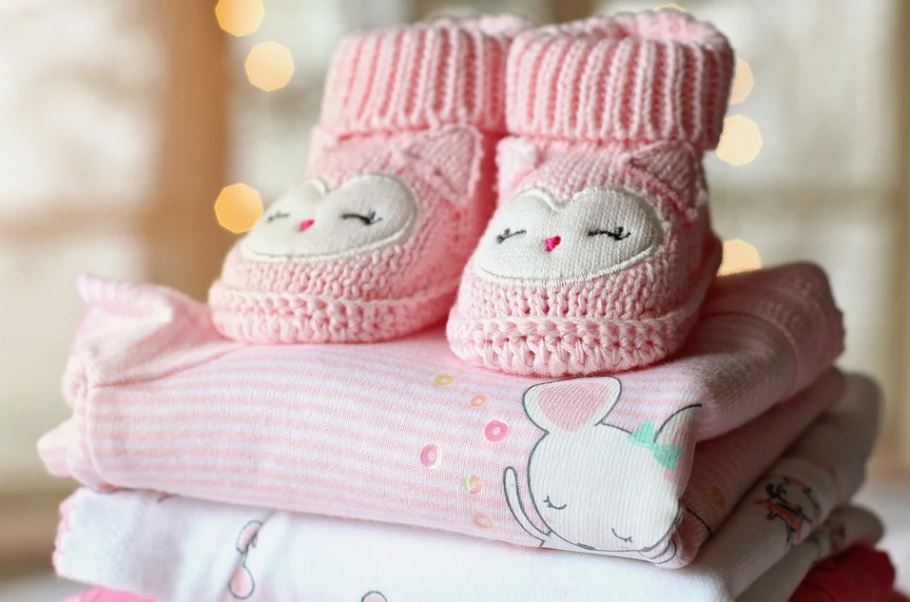Get ready – a baby is on the way! Having a baby is definitely a life-changing moment that anyone will experience.
The birth of a new baby can affect you in pretty much everything – physically, mentally, and emotionally. While a newborn baby is usually referred to as a “bundle of joy” (and there’s no doubt about that) the burden of taking care of one also naturally follows. If you’re going to enter parenthood for the first time, anticipate dealing with a lot of baby stress. It may overwhelm you initially, but you’ll eventually get the hang of it.
Parents are bound to deal with issues related to childbirth and taking care of newborns, such as exhaustion, sleepless nights, post-partum depression, and loneliness. But being prepared for the coming of your newborn baby will help you cope better with these nerve-wracking child-rearing situations. Coming home that’s clean and has everything prepared for you will, least, make things a little easier.
Here’s how to get your house in order before the little one arrives:
“Baby-proof” your home
Your baby may not be crawling yet until several months later, but they could still encounter some hazards. Therefore, it’s best to prepare your home now than when you’re sleep-deprived later. Checking for things that might pose a risk to your little one is a good start. But it’s not just that – anything that could harm you while you’re holding your baby (think of slippery floors or rickety furniture) will have to be addressed, too. Install safety features, such as fireplace screens around hearths, safety covers over electrical outlets, non-slip pads under all rugs, and “baby gates” at the top and bottom of staircases. Hide any electrical cords scattering on the floor. Keep tall, wobbly lamps behind furniture and install your TV to the wall, high enough to keep it out of children’s reach. Install smoke and carbon monoxide detectors.
If your home was built before 1978, inspect it for any lead paint and call a professional to get any flaking or peeling paint sealed or removed. Dust from lead paint can be harmful when inhaled or ingested.
If you own handguns or firearms at home, remove ammunition and keep them away in a place separate from the guns. It’s better to have individual safes for the guns and the ammunition and store them in different areas from where keep your house and car keys.
Make a “newborn checklist”
Make a list of everything that you and your baby need before the little one comes home. It will help you determine what you’ll need to buy and prepare as you get ready for your baby’s birth and arrival. Bibs, bottles, breast pumps, booties, (if you plan to breastfeed your child) burp cloths, diapers (disposable or reusable cloth diapers), clothing, baby-safe laundry detergent, sleeping materials, and other essential items should be included in your checklist. It’s also nice to include non-essential things, such as pacifiers, rattles and other teething toys (make sure that they are safe and non-toxic), a baby car seat, and shade for car windows to protect your baby from the sun.
Prep for visitors
It’s worth spending some time now to know what overnight guests, such as your parents, your in-laws, or your best friend, will need when they stay. This way, you won’t find yourself in a rush searching for sheets or towels the moment you come home from the hospital. Stock up on some towels, toiletries, and toilet paper. Change the sheets and put an extra fan for some white noise.
Do the laundry ahead of time
Washing, drying, and folding baby clothes and sleepers is something that mothers-to-be won’t mind doing. Remove packaging and any tags that can irritate your baby’s sensitive skin. Use a detergent that’s free of dyes and other irritants or one particularly marketed for infants.
Clean your home
That goes without saying! Target the “red zones” in particular – doorknobs, light switches, kitchen sinks, countertops, refrigerator handles, stove knobs, microwave knobs and handles, cutting boards, and even a toothbrush handle. To bring your baby to a spic-and-span abode, have your partner clean and disinfect everything as you’re recovering in the hospital. Stash a good stack of sanitizing wipes near those “red zones” to clean them on a regular basis.
